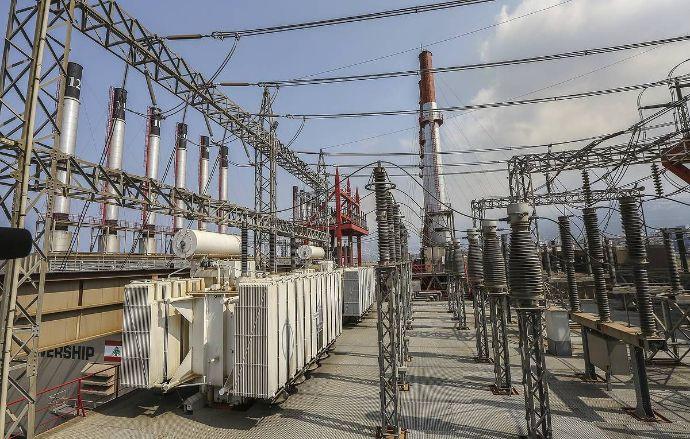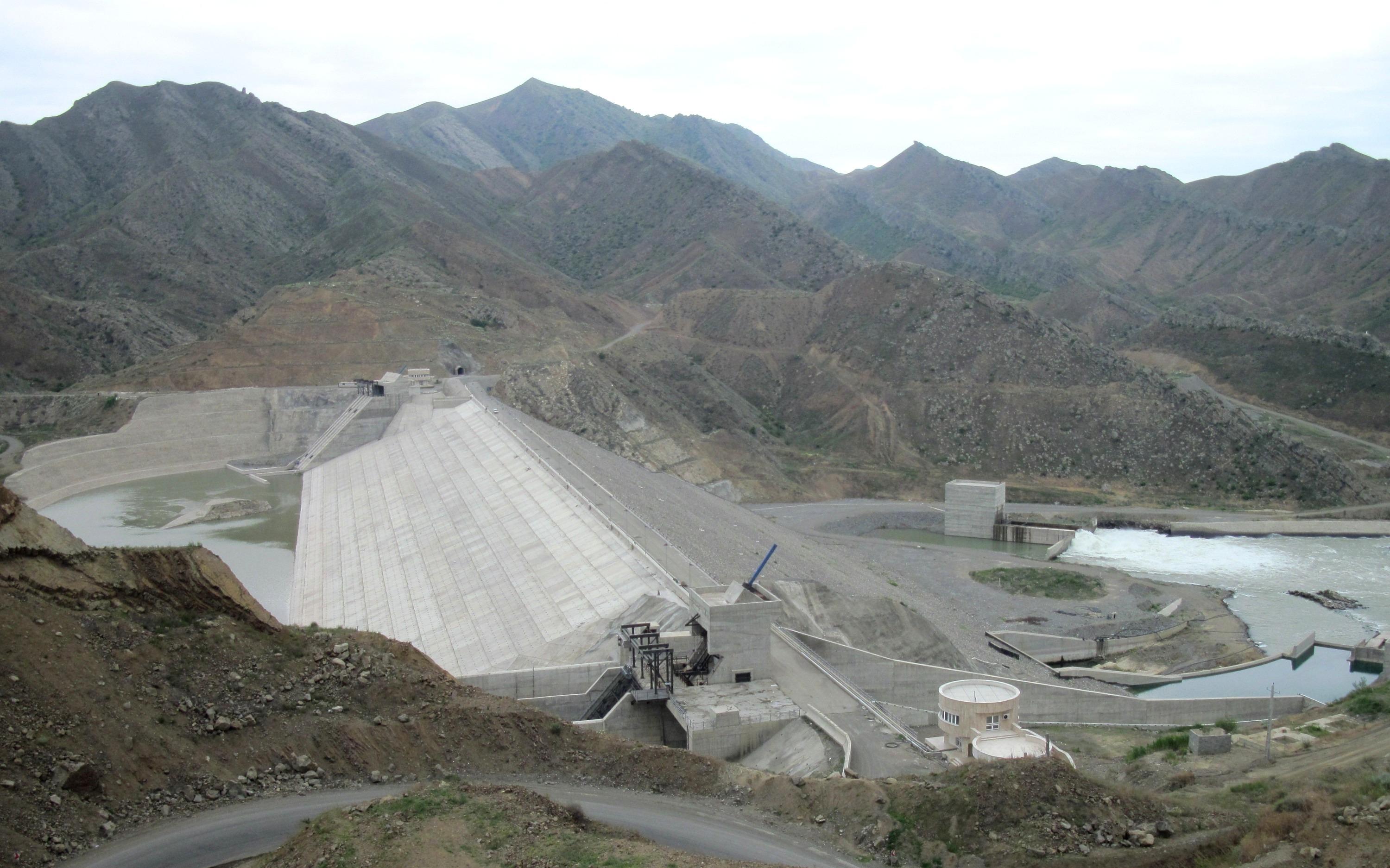Azerbaijan expands power exports to Türkiye, EU Analysis by Caliber.Az
The prolonged heat in Europe has put additional strain on electricity markets, as there is a scarcity of the primary production resource, Russian natural gas. As a result, electricity prices reached an all-time high in mid-August. In these circumstances, the winners are the countries that export electricity, such as Azerbaijan, which increased external gas supplies by more than 26% in the first seven months of this year. As a country with a positive energy balance, Azerbaijan is building new generating and transit infrastructure to increase exports to Iran, Türkiye, and several EU countries.
According to the recent information in the Financial Times, the gas crisis in Europe had the most negative impact on the stability of the provision of the Old World with electricity. The production cycle is disrupted at power plants. The cost of power generation has increased by many times. The prolonged summer heat has exacerbated the situation, disrupting generating capacity and increasing the demand for electricity to air-condition offices, and industrial and residential buildings. The wind energy production decreased as a result of wind speed which was reduced due to high air temperatures, while low water levels in the Rhine transboundary river interrupted the supply of coal to power plants in Germany. The power generation indicators at hydroelectric power stations also decreased in some neighbouring countries due to drought and shallowing of rivers. The French nuclear power industry has also faced problems because of the heat. The change in the water balance of rivers makes it difficult to cool reactors and forces to reduce the power of nuclear power plants.
The shortage of gas remains the main negative factor for the European energy sector due to the actual reduction of Russian pipeline gas supplies to a minimum. Thus, according to the London Stock Exchange Group, the cost of gas supplies from the TTF hub for September has recently increased by 11 per cent, to a record $2,450 per 1,000 cubic metres. Any change in gas supply increases the demand and prices for alternative energy sources and immediately affects electricity prices. As a result, not only gas quotations but also wholesale prices for electricity rose to a record high. According to the biggest Scandinavian Nord Pool energy exchange, electricity supplies for the day ahead increased to 490 euros per MW / hour in Germany and Austria, while in France - up to 500 euros on August 15, which is on average five times more than the prices in August 2021.

Apparently, the gas crisis observed this summer and high electricity prices will continue in autumn and winter 2022, as well as in early 2023. In particular, according to Bloomberg, the UK will have to rely on electricity imports via transit power from France, Norway, Belgium and the Netherlands from December 2022, which is very risky for the UK's energy security, not to mention the prospects for a sharp rise in prices. BFY consulting company predicts that UK citizens will be forced to pay 500 pounds per MW/hour of electricity in January 2023.
According to the World Bank (WB), world electricity prices, which almost doubled last year, may rise by 50 more per cent this year, while it will be possible to talk about a tangible decline only in 2024. However, according to WB analysts, prices will remain at "historic highs" even in two years.
Obviously, record-forward electricity prices in Western Europe cannot but affect the increase in wholesale electricity prices in neighbouring countries of Eastern and Southern Europe. The energy shortage is felt in Türkiye, Iran, etc. Accordingly, the demand for electricity imports is growing in these countries, and Azerbaijan is also trying to make up for the shortage. As opposed to many neighbouring countries in the region, Azerbaijan did not face any problems in electricity supply in 2021-2022, moreover, Azerbaijan has been a net exporter of electricity for 14 years. Today, Azerbaijan's electric power system is the most powerful one in the South Caucasus. It is based on 13 big thermal and eight hydroelectric power plants, in general, 32 power plants of various capacities are on the balance sheet of Azerenergy company. Taking into account private small hydroelectric power stations, solar, wind and other generating facilities, the installed capacity of the Azerbaijani energy system reaches 7,139 MW.
The country's existing generation potential fully covers the country's electricity needs, allowing it to annually export additional 2-2.5 billion kWh without any risk to energy security. Thus, a record volume of electricity exports over 1.673 billion kWh, was observed last year, which is 45.4 per cent more than a year earlier. In general, this positive trend has been maintained this year. According to the Ministry of Energy, the export of Azerbaijani electricity increased by 26.3 per cent in January-July 2022, exceeding 1.037 billion kWh, and if the current dynamics persist, last year's record figures will be surpassed.
Moreover, the structure and geographical orientation of electric power exports have recently changed. Besides the traditional energy exchange on mutual settlements with Iran and Russia, Azerbaijani electricity was mainly exported to Georgia and Türkiye. Azerenergy company has established swap supplies of electricity to Greece, Romania, Bulgaria and Hungary since May 2019. Despite these operations being interrupted during the COVID-19 pandemic, GlobalPower, a subsidiary of Azerenergy company operating in Türkiye, was able to resume swap supplies to Bulgaria and Greece last year. Over time, this trend will become a key one, and Azerbaijan, in partnership with Türkiye, plans to expand exports to other EU states in 2024.
An additional generation cluster, based mainly on the use of renewable energy sources, including facilities being built on Azerbaijani lands liberated from the Armenian occupation, is being formed in Azerbaijan to achieve this goal. At the same time, a new transit corridor (with powerful substations and power lines) is being created in the Karabakh and East Zangazur economic regions for the export of electricity in the southwest direction.

In particular, the matter rests in a joint project with Iran to create two hydropower plants at the Khudaferin and Giz Galasi hydroelectric facilities with a total capacity of 280 MW on the Araz border river, as well as the construction of several winds, solar and hydroelectric power plants in the liberated territories. The BP Jabrayil solar power plant with a capacity of 240 MW is planned to be built in this region, while Masdar from the UAE is exploring the prospects for localising solar and wind power plants with a total capacity of about 200 MW. Four small hydropower plants have been fully restored in the Karabakh region and five more small hydropower plants with a total capacity of 100.27 MW on the rivers and reservoirs of the Lesser Caucasus are being modernised. The electricity generated at the mentioned facilities, in addition to supplying to the region, which is being revived, will be exported to neighbouring countries - partly to Iran, and mainly to Türkiye. Corresponding transmission infrastructure is being created along the Zangazur corridor for this purpose. Thus, the construction of the 330/110-kilovolt "Jabrayil" substation which is the biggest one in the region has recently started. Then another 255-kilometre power line will be laid through the Zangazur corridor to the Nakhchivan Autonomous Republic, in which the "Shahtakhti" substation of the same capacity will be built. Another substation will be built on the border between the Nakhchivan Autonomous Republic and Türkiye in the future to convert 330 kilovolts to 400 kilovolts, from where 230 km of a double-circuit 400-kilovolt power transmission line will be laid to Türkiye.
Another option is being considered to increase the export potential in the Turkish direction and further in the European direction. Over a year ago, the oil companies of the two fraternal countries - SOCAR and BOTAS signed a memorandum on the construction of an 85-kilometre branch of the Igdir-Nakhchivan gas pipeline with a throughput capacity of 500 million cubic metres of gas per year. The elaboration of the technical aspects of the gas pipeline project is under completion and then the construction work will start. The Turkish companies’ proposal to build a gas turbine power plant with a capacity of 550 MW is being considered as part of this initiative. The electricity to be generated in the Nakhchivan Autonomous Republic will be exported to Türkiye.
The mentioned infrastructure initiatives are planned to be implemented in the next few years, thereby Azerbaijan will be able to confidently diversify the electricity which is supplied abroad by obtaining reliable and safe capacity reserves in case of force majeure or a sharp increase in domestic demand.








